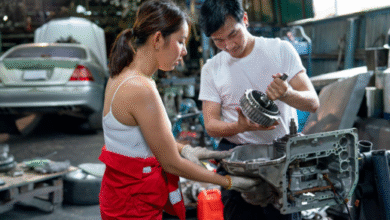
Tailgating, or driving too closely behind the vehicle in front, is a common but dangerous driving habit. Despite being viewed by some as merely an annoyance, tailgating has serious implications that can turn deadly in a split second. If you have been involved in an accident due to tailgating, a personal injury lawyer from Tuite Law Firm can help you understand the legal aspects of your accident.
In fact, tailgating reduces reaction time, impairs judgment, escalates stress levels, and can lead to more severe accidents and injuries. As responsible drivers, we should always maintain a safe following distance, allowing at least a two-second gap between us and the vehicle in front. This simple practice can make our roads safer and reduce the risk of accidents caused by tailgating.
Let’s delve into why this behavior is so hazardous.
Reduced Reaction Time
The primary danger of tailgating lies in the drastically reduced reaction time it affords the following driver. The closer a vehicle is to the one in front, the less time the driver has to react to sudden stops or changes in speed. This lack of space and time often results in rear-end collisions.
Impaired Judgment
When a driver tailgates, their focus narrows to the vehicle directly in front of them. This tunnel vision can cause drivers to miss vital cues from their wider environment, such as traffic signals, pedestrians, or other vehicles, leading to potential accidents.
Increased Stress Levels
Tailgating creates a stressful driving environment for both parties involved. The driver being tailgated may feel pressured and anxious, which can lead to mistakes. Moreover, the tailgater, fuelled by impatience or anger, may also make poor decisions due to their heightened emotions.
Escalation to Road Rage
Tailgating can escalate to road rage incidents. The driver in front may become angry or frightened by the tailgater’s aggressive behavior, potentially retaliating or reacting in a way that could cause an accident.
Greater Impact Speeds
A tailgating driver who fails to react in time will hit the vehicle in front at a higher speed than if they were maintaining a safe following distance. The increased impact speed can result in more severe damage and injuries.
Chain Reaction Collisions
Tailgating can cause chain reaction collisions, especially on busy roads and highways. When a tailgater crashes into the car in front, it can lead to a domino effect, involving multiple vehicles in the accident.
Increased Risk of Injury
The close proximity during tailgating increases the likelihood of injuries in the event of a collision. Rear-end collisions can result in whiplash, a type of neck injury caused by a sudden jerking motion. Whiplash can lead to long-term pain and disability.



